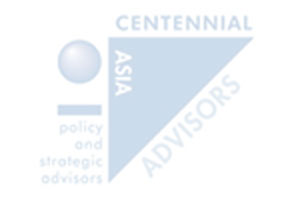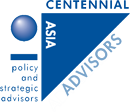Asian Insights
A summary of “Asian Insights” weekly update is published here. The full version is available through paid subscription. Please click here to register your interest. Our executive will get in touch with you.

Highlights from the CAA Weekly Table
What has changed?
- Geopolitical risks: A North Korea, emboldened by a thaw in ties with China and a resilient domestic economy, could find it expedient to create more tensions in the region.
- Global economy: Further nascent signs of global demand firming up have emerged, such as upbeat semiconductor sales and a surging jobs market in the US. As fears of a global recession recede, and OPEC makes deeper production, oil prices have crept up but are unlikely to reach levels that could threaten Asian economies.
- Asian economies: The Chinese economy is decisively turning around, with both manufacturing and services sectors gaining traction. Brace for unexpected twists and turns in the budget talks in the Philippines after Congress opted to start budget deliberations from scratch. While stability indicators augur well for Indonesia, economic growth remains tepid. The Singapore economy is in the first innings of a recovery: despite being hostage to global risks, activity indicators and business confidence are recovering. The recovery scenario we envisaged for Thailand will take a longer time to pan out. The Malaysian economy will sustain its relatively good performance so far this year, with prospects for 2020 strengthened by a recovery in global demand, production relocation, and further monetary accommodation.
- Asian political risks: Indonesia’s President Jokowi has re-asserted his power, firmly slapping down efforts by vested interests to amend the constitution to dilute his powers. His ally in the Golkar party, was re-elected its leader after direct intervention by Jokowi’s key trouble-shooter – all good signs for further reforms. Malaysia’s ruling coalition is barrelling toward a re-alignment, after a raucous party congress made the splits within its main component, the PKR, irreparable.
Asia is left to fend for itself as the global trade order breaks down
- Over the past week, the US dealt fresh blows to the global trade regime by unilaterally imposing import tariffs on trading partners over a variety of issues, ranging from allegedly unfair exchange rate devaluations to a mooted digital tax that has gained traction globally.
- This comes as US-China trade talks over a limited phase one deal have stalled. Contestations in the diplomatic arena threaten to complicate trade deliberations though the broader concern is the balkanisation of the tech world as the geostrategic competition intensifies.
- The rules-based global trade regime which protected Asian exporting nations is now on the brink of collapse. The WTO’s Appellate Body will cease to function once the mandates of 2 out of 3 members lapse by 10 Dec 19, while the US has stonewalled attempts to appoint more judges to the 7-member body.
- The US has stepped up bilateral trade negotiations, as it leverages on its own economic heft to extract concessions from smaller and more vulnerable states. Asia has to step up and fortify its defences.
- More clarity on contentious areas, fostering domestic growth engines, undertaking more structural reforms and cultivating comprehensive partnerships will serve as mitigating factors in a hostile global environment.

Highlights from the CAA Weekly Table
What has changed?
1. Geopolitical risks worsened:
- US-China negotiations have become hostage to domestic political considerations. Thus, the “phase one” agreement will take more time to materialise. Taiwan could become the next flashpoint in US-China relations, threatening these negotiations and overall relations.
2. Asian economies – some pockets of resilience:
- Taiwan is holding up better than Korea, with the latter’s growth prospects looking decidedly lacklustre. The Singapore economy could find its footing earlier than expected as its export engine benefits from the nascent upturn in the global tech cycle. GDP growth in India may have reached a bottom but any rebound will be insipid amid a dearth of private investment, compounded by tightening credit conditions. Budget talks have hit in the final stretch in the Philippines as Congress is on track to green-light the bill prior to the end of the year.
3. Asian political risks:
- In China, a rare outburst of protests in Guangdong neighbouring Hong Kong was vigorously suppressed by the authorities. After a short respite, protests have resumed in Hong Kong. In Malaysia, the infighting within the largest party in the ruling coalition intensified.
How much upside to global demand is likely in 2020?
- More signs of the global economy regaining its footing: rising US capital spending, improved business confidence in the Eurozone and firmer evidence of a turnaround in China.
- While the global improvement will not benefit Asian export demand quickly, the odds of an export recovery in early 2020 are firming up, especially as more policy stimulus beyond monetary easing seems likely.
China: Financial risks in check; watch for “unknown” risks instead
- Financial risks remain salient as worsening corporate profitability adds to the pressure on China’s rickety small banks. Our view is that these episodic stresses can probably be managed; the danger to the economy will come from the risks that the policymakers are not aware of, given the growing complexity and opacity of the financial system.
Indonesia: A lot is riding on the cherished reform agenda
- The administration has moved aggressively on bureaucratic reforms, starting with the centralization of the investment promotion board’s functions, scaling back overlapping government regulations and ministerial decrees, and streamlining the bureaucracy by halving the number of echelons in the civil service.
- An omnibus jobs bill that aims to do away with onerous restrictions on hiring and firing of workers and an omnibus tax bill to cut corporate tax rates will undergo deliberations in parliament. The best case scenario would be for both bills to be approved by 1H20.
- Nevertheless, the passage of reforms is not without its risks. Parliament could still water down or even block the reforms in the face of a pushback from vested interest groups. Infighting within the Golkar party is intensifying, with a small risk that a defeat for the pro-Jokowi Airlangga faction could cast a pall over the reform agenda.
